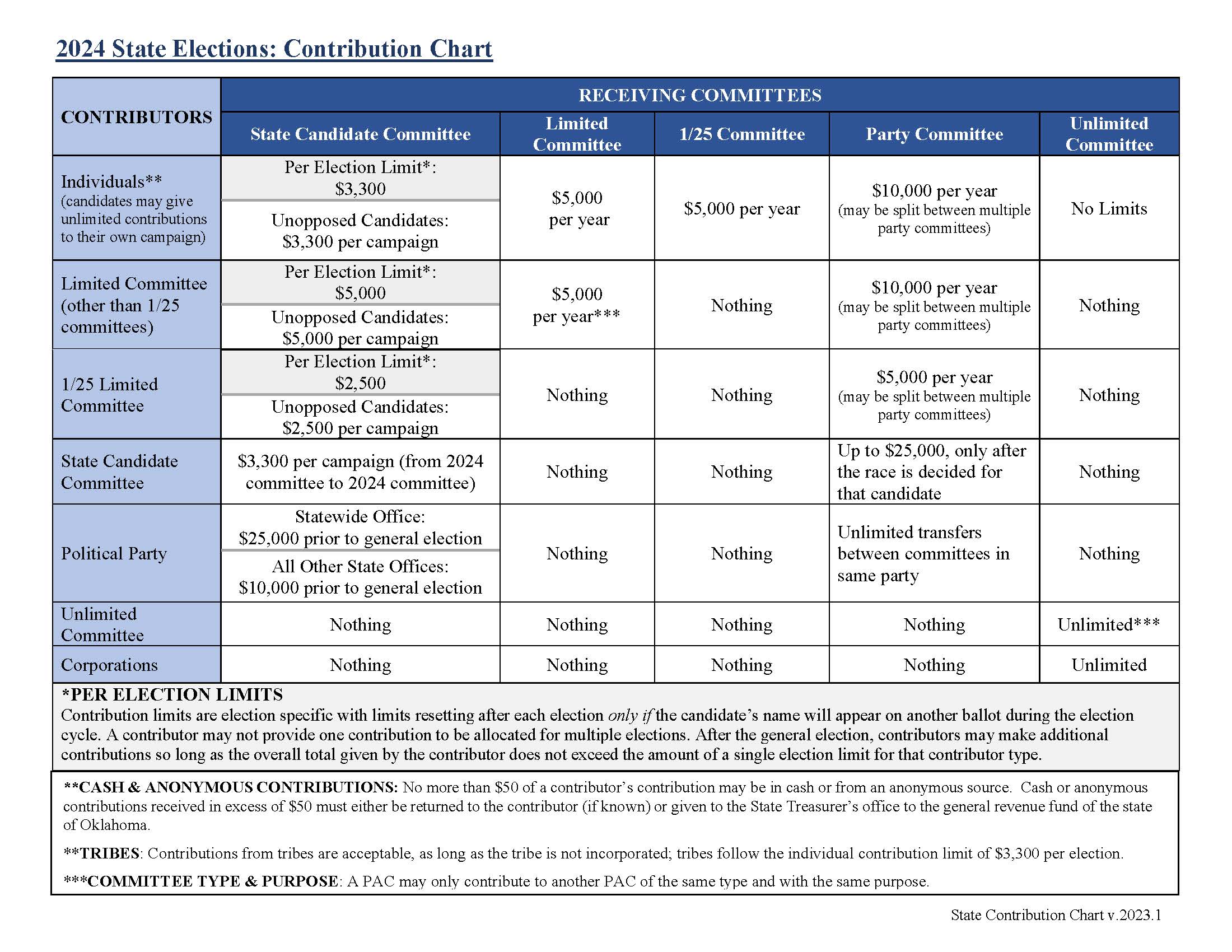

- 2024 Election Contribution Chart PRINT VERSION
- 2024 Special HD39 Election Contribution Chart PRINT VERSION
- 2023 Special SD32 Election Contribution Chart PRINT VERSION
- 2022 Election Contribution Chart PRINT VERSION
- 2020-2021 Contribution Chart PRINT VERSION
- 2018 -2019 Contribution Chart PRINT VERSION
![]()
Independent Expenditure and Electioneering Chart
| Entity Making an Independent Expenditure or Electioneering Communication | Required to Register | Required to Report | Who Can Contribute | Contribution Limits | Disclaimer Required | Identifier Required |
| Individual | No | No | No one | N/A | Yes | Yes |
| Non-Affiliated Limited Committee | Yes | Yes | Individuals; other limited committees | $5,000 per calendar year | Yes | Yes |
| Affiliated Limited Committee | Yes | Yes | Solicitable class; other limited committees | $5,000 per calendar year | Yes | Yes |
| Other entities (for-profit corporations, non-profit corporations, professional corporations, limited liability companies, partnerships, limited liability partnerships, sole proprietorships) | No | Yes | Anyone | None | Yes | Yes |
| Political Party Committees | Yes | Yes | Individuals; limited committees | $10,000 per calendar year* | Yes | Yes |
- Limited committees registered less than a year prior to the primary election or that have fewer than 25 contributors may make a maximum contribution of $5,000.
Candidates may not make independent expenditures. Candidates may make an electioneering communication only in the candidate’s own campaign.
PAC OR PARTY COMMITTEE REPORTING FOR INDEPENDENT EXPENDITURES AND ELECTIONEERING COMMUNICATIONS ONLY
In addition to the quarterly reporting, the next business day reports will be triggered when making Independent Expenditures [IE’s] or Electioneering Communications [EC’s] of $5,000 or more in the aggregate, PAC or Party Committees will file these reports online in the Guardian.
ISSUE ADVOCACY
Any entity may engage in issue advocacy. Issue advocacy is not subject to registration or reporting requirements under the Ethics Rules.
However, what otherwise may be issue advocacy becomes an electioneering communication if (1) it refers to a clearly identified candidate for state office, (2) it is made within 60 days of a general election or 30 days of a primary election, (3) is targeted to the relevant electorate and (4) does not explicitly advocate the election or defeat of any candidate. “Relevant electorate” means 25,000 or more persons in the State of Oklahoma in the case of a candidate for statewide office, 2,500 or more persons in the district the candidate seeks to represent in the case of a candidate for the Oklahoma State House of Representatives or judge of the District Court and 5,000 or more persons in the district the candidate seeks to represent in the case of all other elective offices.


